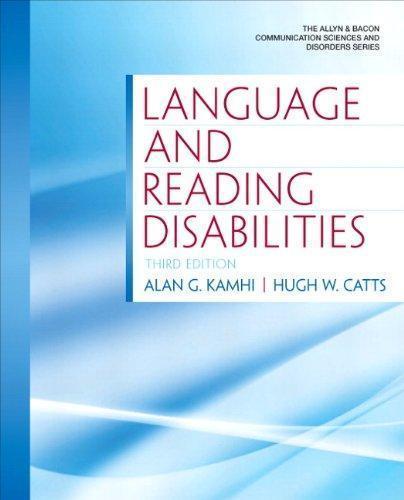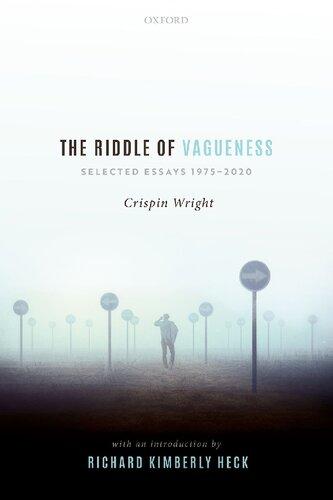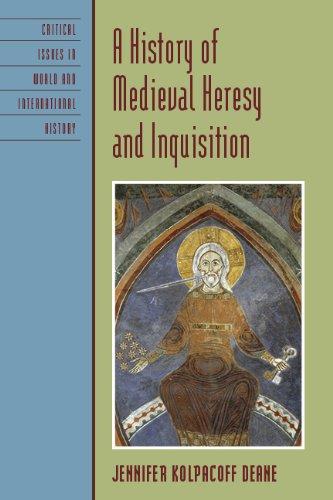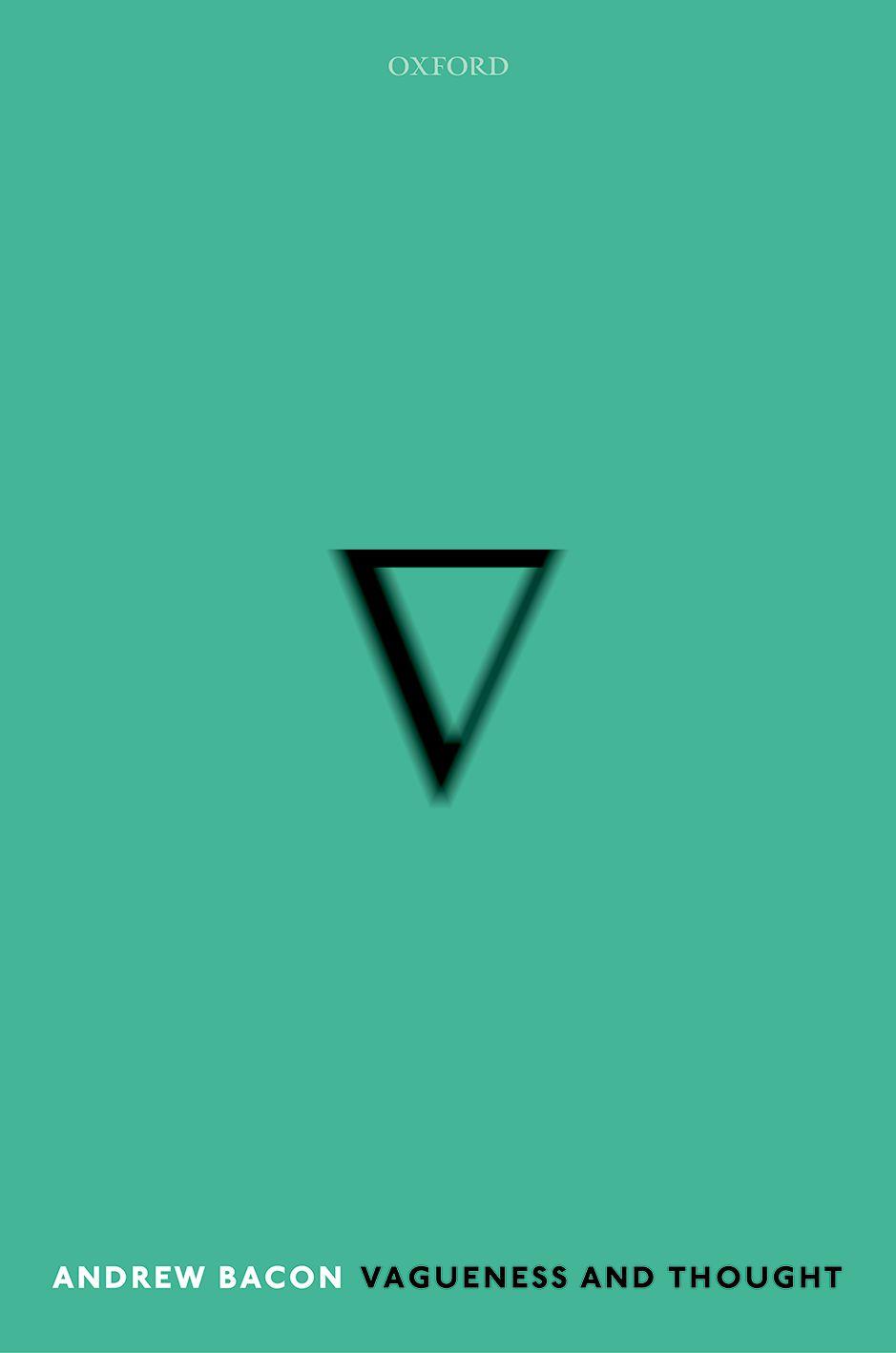Vaguenessand Thought
AndrewBacon
GreatClarendonStreet,Oxford,OX26DP, UnitedKingdom
OxfordUniversityPressisadepartmentoftheUniversityofOxford. ItfurtherstheUniversity’sobjectiveofexcellenceinresearch,scholarship, andeducationbypublishingworldwide.Oxfordisaregisteredtrademarkof OxfordUniversityPressintheUKandincertainothercountries
©AndrewBacon2018
Themoralrightsoftheauthorhavebeenasserted
FirstEditionpublishedin2018
Impression:1
Allrightsreserved.Nopartofthispublicationmaybereproduced,storedin aretrievalsystem,ortransmitted,inanyformorbyanymeans,withoutthe priorpermissioninwritingofOxfordUniversityPress,orasexpresslypermitted bylaw,bylicenceorundertermsagreedwiththeappropriatereprographics rightsorganization.Enquiriesconcerningreproductionoutsidethescopeofthe aboveshouldbesenttotheRightsDepartment,OxfordUniversityPress,atthe addressabove
Youmustnotcirculatethisworkinanyotherform andyoumustimposethissameconditiononanyacquirer
PublishedintheUnitedStatesofAmericabyOxfordUniversityPress 198MadisonAvenue,NewYork,NY10016,UnitedStatesofAmerica
BritishLibraryCataloguinginPublicationData
Dataavailable
LibraryofCongressControlNumber:2017957867
ISBN978–0–19–871206–0
Printedandboundby CPIGroup(UK)Ltd,Croydon,CR04YY
LinkstothirdpartywebsitesareprovidedbyOxfordingoodfaithand forinformationonly.Oxforddisclaimsanyresponsibilityforthematerials containedinanythirdpartywebsitereferencedinthiswork.
ForHelen
Preface
Accordingtoorthodoxythestudyofvaguenessbelongstothedomainofthephilosophyoflanguage.Accordingtothatparadigm,solvingtheparadoxesofvagueness involvesinvestigatingthenatureofwordslike‘heap’and‘bald’inEnglish,andparallel wordsinotherlanguages.
Bycontrast,thetheoryIadvocateinthisbookisatheoryof propositional vagueness. WhileIcertainlyrecognizeanotionofvaguenessapplicabletosentencesandother linguisticexpressions,thesenotionsaretobeexplainedintermsofpropositional vaguenessandnottheotherwayaround.Insteadofunderstandingvaguenessin termsoflanguage,theviewofthisbookplacesthestudyofvaguenesssquarelyin epistemologicalterms,situatingitwithinatheoryofrationalpropositionalattitudes.
Letmebeginwithabitofautobiography.Thisprojectstartedoffin2009asa 30,000wordessaywrittenforthethesisportionoftheOxfordBPhilexamination. OverthenexteightyearstheprojectturnedintomyDPhilthesis,andeventuallythis book.However,theprojectchangedagreatdealoverthatperiod.Manyoftheviews criticizedinthefollowingpagesareviewsIonceheld,andtheendresultnodoubt bearsthemarksofthis.Indeed,theoriginalpurposeofthethesiswastoinvestigatethe epistemologyofvaguenessinthecontextofalinguistictheoryofvagueness.Whilemy primaryfocuswasontheepistemologicalaspectsofvagueness,Iwasworkingwiththe backgroundassumptionthatvaguenesswasfundamentallyalinguisticphenomenon. Myhopewasthatitwouldbepossibletousegame-theoreticconcepts—specifically, certainsortsofmixedstrategyequilibria—withinabroadlyLewisianaccountofthe conventionsoflanguagetoexplainwhyweareignorantaboutthevague.However, aboutayearintomyDPhil,Irealizedthatthisaspectoftheprojectwasadead end.WhileIcouldexplainwhyweareignorantaboutacertainspecializedclassof linguisticmatters—suchas whetherthesentence‘Harryisbald’isatruesentenceof English—Icouldnotexplainignoranceaboutmoremundane,butmorepervasive, vaguematters—suchas whetherHarryisbald.Partoftheproblemhadtodowith issuesoffinenessofgrain.Accordingtosomelinguistictheories,there’snosuchthing aspropositionalvagueness:allpropositionsareprecise,andsothepropositionthat Harryisbaldisidenticaltoaprecisepropositionabouthairnumber.Onceyouare knowledgeableaboutalltheprecisepropositions,therearenopropositionslefttobe ignorantabout.However,evenifwepositvaguepropositionsinadditiontovague sentences,explainingignoranceintheformerintermsoffactsaboutthelatterturned outtobehighlynon-trivial.1
1 Itisalsoworthnotingthat,atthesametime,Iwasworkingonapaperontheliarparadox(Bacon[7]). There,formostlyindependentreasons,Icametotheconclusionthatthenotionofindeterminacysuitable
Thus,despitetheprevailingorthodoxythatvaguenesshasatleastsomethingtodo withlanguage,Ifoundthealternativenon-linguisticpicturehadalottorecommend itself.Whatfollowsisparticularwayofspellingoutthatpicture.
Hereisabriefoverviewofthestructureofthebook.Inchapter1,Iargueagainst thenihilistresponsestothesoritesparadoxandagainstresponsesthatrejectclassical logic,settinguponeofthefundamentalpresuppositionsofthisbook:thatsorites sequenceshavecutoffpoints.Inchapter2,Imoveontothedebateoverclassical theoriesofvagueness—thetwomostprominentofwhichareepistemicismand supervaluationism.Ioutlinesomewidelydiscussedquestionsinthephilosophyof vagueness,andlookathowepistemicismandsupervaluationismaretypicallytaken toengagewiththem.Iargue,however,thatthesequestionsonthewholedonotreally carvethephilosophicalview-spaceatitsjointsandthattheclassificationofviews assupervaluationistandepistemicistisoftennotalwaysthatinsightful.Isuggest, inchapter3,somequestionsofmyownandgiveabroadoverviewofmytheory. Inchapter4,Idiscusstheproperformulationofthedistinctionbetweensentential andpropositionalvaguenessanddistinguishbetweenapproachestovaguenessthat takeoneortheothertobethecentraltheoreticalconcept.Inchapter5,Ipresentmy argumentagainstlinguisticaccountsofvagueness;Iarguethatonlyapropositional theoryofvaguenesscanexplainignoranceduetovagueness.
Mypositiveviewstartsinchapter6.Thischaptertellsuswhatthe roleinthought of avaguepropositionis,andintroducesthe PrincipleofPlenitude thatstates,roughly, thatthere’savaguepropositionsforeverypossibleroleinthought.Chapter7takesan in-depthlookatanalternative,butrelated,viewthatisduetoHartryField.Oneofthe primarydifferencesbetweentheviewsisthat,unlikeField,Iacceptprobabilism—the thesisthatrationalcredencesaregovernedbytheaxiomsoftheprobabilitycalculus. InthischapterIdefendthatcommitment,anddiscusstheconnectionbetween credencesandhigher-ordervagueness.Chapter8introducestheprinciple Rational Supervenience,thatcapturesasenseinwhichalldisagreementsaboutthevague boildowntodisagreementsabouttheprecise.Chapter9introducesJeffrey’sdecision theoryinacontextwherevaguepropositionsareamongyourpreferencesandare amongthethingsyoucanmaketrue.HereIdiscussthethoughtthatattitudeswith vaguecontentsaresuperfluousforpracticalreasoning.Chapter10introducesthe principle Indifference,statingthatitisirrationaltocare intrinsically aboutthevague.
InthethirdpartofthebookIturntoanumberoflogicalandmetaphysicalissues relatingtothenatureofpropositions,modality,possibleworldsandthesemantics forpropositionalvagueness.Chapter11outlinesageneraltheoryofproposition accordingtowhichtheyareindividuatedbytheirepistemicroles,andintroducesa broadestmodalityforreasoningaboutnotionslikepropositionalentailment.Chapter12introducesthedistinctionbetweenvaguenessandborderlineness,andargues fordiagnosingtheliarparadoxcannotbealinguisticpredicateofsentences,butmustratherbeexpressed byanoperatorexpression.
prefaceix thatweshouldtaketheformerastheprimitivenotion,ratherthanthelatter.Chapter13introducesthecentralnotionofa symmetry—roughlyanautomorphismon thealgebraofpropositionsthatpreservestheirroleinthought—andshowshowit canprovideanilluminatinganalysisofvagueness.Chapter14discussestherelation betweenfundamentalpropositions,vagueness,andpossibleworlds,andarguesthat certainusesoftheideologyoffundamentalityandpossibleworldsleadtoparadoxes ofhigher-ordervagueness.Chapter15discussestheinteractionbetweenthedeterminacyandmodaloperators,thesupervenienceofthevagueontheprecise,and comparesthesupervaluationistapproachtothesequestionstothepresentapproach. Chapter16examinesthenotionofavagueobject,andshowshowitfitsnaturally intomytheoryofvagueness.Finally,chapter17discussescasesofindeterminacy (notvagueness)thatseemliketheygenuinelyhavetodowithlanguage;Iarguethat theycanbenaturallyaccountedforwithinatheoryofpropositionalvaguenesssuch asmyown.
Thereareseveralwaystoreadthisbook.Thereis,ofcourse,themoststraightforwardroute:toreaditfrombeginningtoend.Readerswishingtogetarelatively self-contained,albeitcompressed,introductiontomypositiveaccount,however,may takethefollowingroute:
1.Chapter3forabroadoverviewofmytheory.
2.Chapter6forthe PrincipleofPlenitude.
3.Chapter8fortheprinciple RationalSupervenience.
4.Chapter10fortheprinciple Indifference.
5.Chapter12forthedistinctionbetweenvaguenessandborderlineness,and problemsforasupervaluationalapproachtopropositionalvagueness.
6.Chapter13foranexplanationofsymmetrysemantics.
Forthosenotalreadyrelativelyfamiliarwithdecisiontheory,Iwouldalsorecommend addingchapter9—atleastsection9.1—tothisroute:theproperinterpretationof decisiontheorywhenvaguepropositionsareamongthethingsyoucanmaketrue isadelicatematter.Missingfromthisroute,however,ismostofthemotivationfor thissortofviewanddiscussionofalternativeviews.
Thethirdpartofthebookaddressesanumberofissuesconcerningtheproper logicalandsemantictreatmentofpropositionalvagueness.Thesechaptersexplore waysinwhichtheexistenceofpropositionalvaguenessforcesaradicaldeparture fromconventionalthinkingaboutconceptssuchasworlds,precisifications,fundamentality,andsimilarconcepts.Oneoftherunningthemesofthesechaptersisthat it’snotpossibletoisolatetheobjective‘worldly’divisionsinlogicalspacefromthose divisions‘merelyhavingtodowithvagueness’.Oneinstanceofthisideaisanatural supervaluationalwayofmodellingpropositionsassetsofworld–precisificationpairs. Inthisframeworklogicalspacecanbedecomposedstraightforwardlyinto‘worldly’ and‘non-worldly’components.Forreaderswantingtoskipstraighttothesetopics, onecouldreadchapter3foranoverviewofthetheory,andchapters11–16.
Anybookonvaguenesswillsurelyhavebeeninfluencedheavilybythevast literaturethathascomebeforeit.Inmycase,themosteasilytracedinfluences havebeenintheworkofTimWilliamsonandHartryField.WhileIoftenoppose Williamson’sepistemicism,itwasreadinghisworkthatfirstmademeseeclearlyhow harditwastoavoidsomeofhismainconclusions—thatvaguepredicateshavesharp cutoffpoints,andthatwedon’tknowwheretheylie.Again,althoughIcriticizea lotofField’sworkinthisbook,thereareclearcommonalitiesbetweenhisapproach andmine.AlthoughtheviewIdevelopgoesinaverydifferentdirection,thinking abouthisapproachtovaguenessandtheliarhasgreatlyhelpedmesharpenmyown ideas,andledmetoraisemanyofthequestionsIaddressinthisbook.Itisalso worthemphasizingthattheliteraturehasevolvedalotasIwaswritingthisbook; Ihaveattemptedtodiscussnewworkwhereitisrelevant,butthereareomissions nonetheless.
Thisbookhasbeenmostlywrittenfromscratch.Thematerialonbroadnecessityin chapter11hasbeendevelopedfurtherintoapaperinBacon[3],andthereisanatural companionpapertothisbook,Bacon[7],exploringanaccountofpropositional indeterminacyinthecontextoftheliarparadox.
Manypeople,bothinprintandinconversation,haveshapedmythinkingon vagueness.Iwouldlikeinparticulartothankthegraduatestudentsandfacultyat OxfordduringmytimethereandaudiencesatBarcelona,Bristol,Brown,Dubrovnik, Leeds,Munich,Oxford,USC,Yale,andasymposiumonvaguenessandbeliefatthe 2015CentralAPA,atwhichIpresentedvariousversionsoftheideasdevelopedin thisbook.Ireceivedlotsofhelpfulfeedbackfromthesepeople.Ialsooweadebtof gratitudetotwoanonymousrefereesforOUP,bothofwhommadeextremelyhelpful suggestionsaboutthestructureofthebook,whichledmetosignificantlyreorganize thecontent.
In2013,Itookpartinanonlinereadinggrouponthisbook.Participantsincluded MikeCaie,AndreasDitter,CianDorr,HartryField,PeterFritz,JeremyGoodman,and HarveyLederman.Theresultsofthesediscussionsgreatlyimprovedthebook.I’dalso liketothankShievaKleinschmidt,OfraMagidor,JeffRussell,BernardSalow,Mark Schroeder,andRobbieWilliamsfromwhoseconversationsIhavebenefitedoverthe years(RobbiewastheexternalexaminerfortheaforementionedDPhilthesisfrom whichthisbookevolved,andOfra,Ilaterdiscovered,wastheexaminerfortheBPhil thesis;boththeircommentsleadtosomeimportantimprovements).
Iwouldlike,inparticular,tothankMikeCaie,whosentmeincrediblydetailed commentsonthebook.Apartfromprovidingmanyonpointcriticismsofthecentral philosophicalclaimsofthebook,Mikeworkedhiswaythroughallofthetechnical material,spottingseveralmistakesandgavememanyhelpfulsuggestionsabout presentation.
SpecialthanksarealsoduetoJohnHawthorneandTimWilliamson.Apartfrom hisinfluenceinprint,Tim,asmysecondarysupervisorfortheDPhil,hasprovided mewithlotsofinsightfulfeedbackandcommentsonmyworkduringmytimeat
Oxford;bothhisteachingandwritinghavebeenagreatsourceofinspirationforme. Manyideasinthisbook(and,indeed,manyideasnotinthisbook)havebeenfiltered throughJohninoneformoranother.In2015,Ico-taughtaseminaronvaguenesswith Johnwhichcoveredalargeportionofthisbook.Hiscommentsduringthisseminar improvedthebookinagreatnumberofmattersofdetail,butalsohelpedmeseethe bookinthecontextofthebiggerpicture.
Mydeepestdebtofgratitudeistomysupervisorandmentor,CianDorr.Although heholdscompletelyopposingviewsonthetopicofvagueness,hisinfluenceonthis projectistoopervasivetobeproperlycredited.Hismarkcanbefoundonmostofthe centralideasinthisbook.
IwouldalsoliketothankPeterMomtchiloffforhissupportonthisproject. I’despeciallyliketothankTanyaKostochkaandBrianNorth:Tanyaforspotting countlesserrorsandofferingseveralhelpfulsuggestionsaboutmakingthecontent moreaccessible,andBrianNorthforhismeticulousworkincopy-editingthebook.
Lastly,thankstothePasadenabranchofOhMyPan!Taiwanesebakery,andtheLA metroGoldandExpolines,whereanon-trivialportionofthisbookwaswritten. Gratitudeofanotherkindisowedtomywife,Helen,withoutwhomIwouldhave probablyneverfinishedthisthing.
PartII.EpistemologicalMatters
5.3DenyingIgnoranceabouttheVague
5.3.3Non-linguisticbehaviour
5.3.4Thecontextualistno-ignoranceview
5.3.5Moreonnon-linguisticbehaviour
6.VaguenessandEvidence96
6.1InexactEvidence
6.2UpdatingonVagueEvidence
6.2.1Conditioningonapreciseproposition
6.3APrincipleofPlenitudeforVaguePropositions
7.Probabilism,Assertion,andHigher-OrderVagueness124 7.1Field’sTheory
7.2.2Theroleofborderlineness
7.2.3Theforcedmarchsorites
7.2.4Paradoxesofhigher-ordervagueness
7.3.1Dutchbookarguments
7.3.2Comparativeprobabilityjudgements
7.3.3Isthereanythingspecialaboutvagueness-relateduncertainty?
8.2DisagreementsaboutMorals,Conditionals,andEpistemicModals
8.3DoAllRationalDisagreementsabouttheVagueBoilDown toDisagreementsaboutthePrecise?
9.VaguenessandDecision169
ListofFigures
2.1.Theadmissiblecutoffpointsforrichness 25
6.1.ThepropositionthatHarryisbald(i)isentailedbytheproposition thatHarryhasatmost1hair,(ii)entailsthepropositionthatHarry hasatmost1010 hairs,and(iii)neitherentailsnorisentailedbythe propositionthatHarryhasatmost N hairs104
6.2.Asmoothcurveandasharpcurveof n againstcredencethatHarry has n hairs106
6.3.Theresultofconditioninguniformpriorsonthepropositionthatthe treeisbetween300cmand500cmhigh108
6.4.Agraphof n againsttheproportionofepistemicstateswherethetree’s heightis ncmwhereit’salsoabout400cm 114
7.1.Thecutoffpointsforbaldness,determinatebaldness,anddeterminate∗ baldness 132
8.1.Threedifferentpriorsassigningdifferentprobabilitiestofour maximallystrongconsistentprecisepropositions—‘cells’—but agreeingontheproportionofeachcellthatthevagueproposition P takesup.Inthisdiagram,apropositionisrepresentedbyasubregion ofeachsquare,andtheprobabilityisrepresentedbythemagnitudeof itsarea 162
8.2.Possiblecredencedistributions,givenpermissivismaboutur-priors166
12.1.Thespacedividedintofourworldpropositions.Thetwodiagrams representtwodivisionsintoprecisepropositionsdependingonthe precisifications v1 and v2 230
12.2.Logicalspacedividedintocellsofconsistentpropositionsthatare maximallystrongamongthepropositionsthatarepreciseaccordingto i 236
13.1.Asimplemodelofvaguenessatallorders 252
13.2.Accordingtotheindices i and j,logicalspaceispartitionedintofour maximallystrongconsistentprecisepropositionsintwodifferentways253
14.1.Thespacedividedintofourworldpropositions.Thetwodiagrams representtwodivisionsintoprecisepropositionsdependingonthe precisifications v1 and v2 261
14.2.Theleftdiagramrepresentsthepartitionoflogicalspaceaccordingto both i and k (thepartitionaccordingto Orb(G(i)) and Orb(G(k))), andtherightdiagramaccordingto j and l (Orb(G(j)) and Orb(G(l)))273
16.1.Amodelofborderlineidentity
16.2.Amodelofthedeterminateexistenceofborderlineidentities.At i,itisdeterminatethatthereisaborderlineidentity,althoughit’s indeterminatewhetheritis x = y or y = z thatisborderline
16.3.Amodelofthedeterminate∗ existenceofborderlineidentities.At i,it isdeterminateatallordersthatthereisaborderlineidentity:forsome n itisborderlinewhether xn = xn+1 ,althoughitisvaguewhich n this holdsfor
301
302
303
Non-ClassicalandNihilistic Approaches
Considerthefollowingvalidpieceofreasoning:1
1.Anyonewith100,000,000cents(amillionaire)isrich.
2.Forany n,ifapersonwith n + 1centsisrich,apersonwith n centsisrich.
3.Thereforeanyonewith1centisrich.
Thisargumentcanbeformalizedandlogicallyprovenfromtheruleofmodusponens (from A and‘if A then B’infer B)anduniversalinstantiation(from‘everythingis F ’ infer‘a is F ’)—bothofwhichareprinciplesacceptedbyprettymucheveryonewho hasparticipatedinthisdebate.Anyonewhoacceptsthepremisesofthisargument andclosestheirbeliefsundermodusponensanduniversalinstantiationwilltherefore accepttheconclusion.Yetthepremisesareseeminglyacceptableandtheconclusion, seemingly,isnot.
WhenIpresentthisparadoxtostudentsforthefirsttime,orwhenIamexplaining whatIdotofriendsandfamily,Icommonlyreceivethefollowingdismissiveresponse: Thereisnoparadoxhere,italljustdependsonhowyoudefinetheword‘rich’.
Iamsuremanyreadingthisarefamiliarwiththisresponse.Howexactlydoesthis remarksolvetheparadox?Doesitrecommendacceptingtheconclusion,andifnot whichpremisedoesitrecommenddenying?Afteralittlethoughtsomewillelaborate asfollows:
Onceyouhavesaidwhatyoumeanby‘rich’itwillbecomeclearwhichpremisetodeny.Ifyou stipulate‘rich’tomeanhavingmorethan20,000,000cents($200,000)thenthesecondpremise fails,butthereisnothingpuzzlingaboutthis—readthiswaythesecondpremiseentails‘ifa personwith20,000,001centshasmorethan20,000,000cents,thenapersonwith20,000,000 centshasmorethan20,000,000cents’andthisisquiteclearlyfalse.
Ofcourse,thereisnothingparticularlyspecialaboutthesecondpremise.Youmight alsoaddthatifyoustipulate‘rich’tomeanhavingmorethanatrilliontrillioncents
1 Anumberofsimplifyingassumptionshavebeenmadetomaketheargumentbeloweasiertoparse. Forexample,Ihaveassumedthatwhethersomeoneisrichdependsonhowmanycentstheyhave.Of coursethisassumptioniswildlyunrealistic—onecanhavewealthinothercurrenciesandassetsthatare notmonetary.
vaguenessandthought
thennobodyisrichandthefirstpremisefails.Ifyoustipulatethat‘rich’applies toeverythingthentheconclusionholds.Whateveronetakes‘rich’tomeanthere isnoparadox;onsomereadingsthepremisesaren’tacceptable(theydon’teven seem acceptable)andonotherstheconclusionisn’tunacceptable(anddoesn’t even seem unacceptable).
Ihopethateverybodyagreesthatthis‘solution’isnotsatisfactory.Whether someoneisrichornotdoesnotdependonwhatyouhavedecidedtostipulatethe word‘rich’tomean.Thereisaquitestraightforwardempiricaltestonecanperform athometodemonstratethis:logintoyourbankaccount,stipulateaway,andobserve thatyoudonotbecomeonebitricher.Yourbalancewillremainexactlythesame—if youwererichbeforeyouwillremainrichandifyouweren’tyouwillremainthatway too.Thisisaget-rich-quickschemethatwillnotwork.
Tothinkthatyouhavesolvedthesoritesparadoxbysayingsomethingaboutthe word‘rich’iswrongheaded—theword‘rich’andthewayitisusedhasnothing intrinsicallytodowithbeingrich.Thereis,ofcourse,anothersoritesparadoxnot aboutrichpeoplebutaboutpeopletowhomtheword‘rich’applieswhenitisbeing stipulatedthat‘rich’meanssuchandsuch.However,deflatingthisparadoxdoesvery littletoaddresstheoriginal.
ThisistheexplanationIgivetomystudents,andforwhatitisworth,itisthe explanationIgavebeforeIendorsedtheviewsdefendedinthisbook.Itisalso,Ihope you’llagree,goodoldcommonsense.
Itshouldbeextremelysurprising,then,todiscoverthatalmostallcontemporary accountsofvaguenesscommitsomethingliketheconflationnotedabove.Invariably theconflationislessblatant,butitistherenonetheless.Accordingtothesetheorists, vagueness—thephenomenonresponsibleforthesoritesparadox—isjustafeatureof thewaythatlinguisticcommunitiesusewordslike‘rich’.Byonepopularaccount(but bynomeanstheonlyonesatisfyingthisdescription)theuseoftheword‘rich’by Englishspeakersisnotspecificenoughtoallowittolatchontoasinglepropertyand toconsequentlydrawasingleboundary.Oneachwayofdrawingthatboundaryitis sharp—asinglecentcantakeyouovertheboundary—buttheuseoftheword‘rich’ inEnglishdoesn’tdeterminewhichcentthatisbecauseitdoesn’tdetermineasingle sharpmeaningwithwhichtodrawtheboundary.
Evenwithsuchapreliminarysketchoftheview,itishardnottothinkthatit isignoringthemoralwedrewfromourdiscussionofthenaïveresponsetothe paradox—thatonecannotsolvethesoritesparadoxjustbysayingsomethingabout theword‘rich’.EvenifwecouldconvincetheentireEnglishspeakingpopulationto usetheword‘rich’differently,doingsowouldnotmakeyouanyricherorpoorer.The accountthereforedoesverylittletoexplainwhywefindithardtoimaginethatone personcouldberichwhileanotherpersonpossessingonelesscentisn’t.Themostit doesisexplainwhyit’shardtoimaginethattheword‘rich’couldapplyinEnglishto onepersonwithoutapplyingtosomeonewithonelesscent.Thiswouldbefineifwe hadaskedaboutthevariantsoritesinvolvingpeopletowhom‘rich’appliesinEnglish,
non-classicalandnihilisticapproaches butonceagainwehavedonelittletoaddresstheparadoxwestartedwithwhichwas aboutrichpeople.(Indeed,somesemanticindecisiontheoristsareevenquiteexplicit aboutthecentralityofthevariantsorites.ForexampleMcGeeandMcLaughlin,after provingtheremustbeasharpcutoffconcerningwhatlooksredtosomeone,write ‘Howdowegetfromthethesisthat,forsome n the nthtilelooksredtoyoubutthe n + 1thtiledoesnottothemetatheoreticalconclusionthattheconceptexpressedby thephrase“looksredtoyou”hasasharpboundary?This,itseemstous,isthecrux ofthesoritesproblem.’(McGeeandMcLaughlin,[104]).)
Toseewhysuchaccountsareexplanatorilyunsatisfactorynotethatonedoesn’t needtobefamiliarwiththeEnglishlanguagetoappreciatetheoriginalparadox. AmonolingualRussianspeakercaneasilyseetheconflictbetweentheideathat millionairesarerichandtheideathatsmallamountsofmoneycannotmakethe differencebetweenbeingrichandnotrich.LikeanEnglishspeaker,shecanalsofeel theintuitivepullofbothclaims.However,shewillbeutterlybaffledbyanattemptto explainthisintermsoftheconditionsunderwhichtheEnglishproducetokensofa certainEnglishword.
Thesepreliminarypoints,Ithink,willleavemanypeopleunconvinced.Afterall,if there’sonethingthatalmosteveryoneagreeson—whetheryou’reanepistemicistor supervaluationistorsomethingelse—it’sthatvaguenesshas something todowiththe wayweuselanguage.Andifitisn’tlinguisticitmustbeeithermetaphysicalorpurely epistemic,andneitheroftheseoptionsseemparticularlypromising.Theprimaryaim ofthisbookistooutlineanaccountofvaguenessthatisn’tfundamentallyalinguistic phenomenonor,indeed,ametaphysicalorpurelyepistemicphenomenon(indeed, thisseemstobeafalsetrilemma).
Ratherthantreatthestudyofvaguenessasabranchofthephilosophyoflanguage, thealternativeviewplacesthestudyofvaguenesssquarelyinepistemologicalterms— herevaguenessischaracterizedbyitsrolewithinatheoryofrationalpropositional attitudes;specificallybeliefanddesire(seethechaptersinpartII).Ioutlinethemain featuresofthisviewinchapter3.
1.1RespondingtotheSorites
Webeganthischapterwithaparadox.Anysolutionworthitssaltmustatminimum saywhichpremisetoreject.Irejectthesecondpremise;Idenythatforany n,ifa personwith n + 1centsisrich,soisapersonwith n cents.
Letussaythatnumber(ofcents)isacutoffforthepropertyofbeingrichifthe correspondingconditionalisfalse.Thisdefinitiongeneralizes:
Definition:Anelement, x,ofasoritessequencefor F isaninteriorpointifand onlyif,if x is F then x (x’ssuccessorinthesequence)is F .
Definition:Anelement, x,ofasoritessequencefor F isaboundary,orcutoff pointifandonlyifit’snotaninteriorpoint.I.e.itisnotthecasethatif x is F then x is F .













